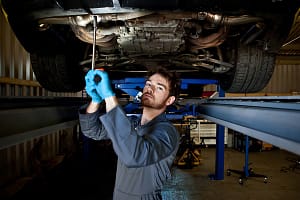Simulation technologies are changing how UK engineering firms approach design, development, and operational challenges. From aerospace to automotive sectors, advanced computational methods are allowing more accurate predictions whilst reducing development costs and timeframes. Understanding these evolving capabilities is important for maintaining a competitive advantage in a complex engineering landscape.
1. Multiphysics and co-simulation integration
Modern engineering challenges demand solutions that bridge traditional simulation domains. Instead of isolating thermal, mechanical, or electrical analyses, engineers now employ co-simulation approaches that model multiple physics simultaneously. UK aerospace firms particularly benefit from coupling thermal, structural, and electromagnetic simulations to predict real-world behaviour more accurately. This integrated method reveals interactions that single-domain analyses miss, such as how thermal expansion affects electromagnetic performance in aircraft systems, leading to more solid designs and fewer costly revisions.
2. Cloud-based and high-performance computing (HPC) models
The shift toward cloud infrastructure and HPC is revolutionising computational capacity for engineering simulation. Circuit simulation software and similar tools have transitioned from desktop-limited applications to scalable cloud environments, enabling complex models to run faster and more efficiently. This change addresses latency concerns whilst offering flexible licensing models that reduce upfront costs. UK firms can now access powerful simulation capabilities without massive hardware investments, democratising advanced analysis tools across organisations of all sizes.
3. Digital twins and real-time data feedback loops
Digital twin technology is perhaps the most significant advancement in simulation application. The UK Parliament’s science advisory body notes that digital twins create dynamic two-way information flows between physical assets and their virtual counterparts, allowing for real-time monitoring and predictive maintenance. The Engineering and Physical Sciences Research Council (EPSRC) invested £100 million in 2024 specifically in digital twin research, recognising their potential across sectors. These systems combine IoT sensors, simulation models, and machine learning to create continuously updated virtual representations that inform operational decisions.
4. AI/ML in simulation: Automation and optimisation
Artificial intelligence is automating traditionally time-consuming simulation tasks, from model creation to error detection. Engineering experts highlight how AI-powered digital twins now provide predictive insights that enable proactive decision-making instead of reactive problem-solving. Machine learning algorithms optimise design space exploration, reducing iteration cycles significantly. UK manufacturers report that AI-enhanced simulation helps identify optimal configurations faster than traditional approaches, accelerating time-to-market whilst improving product performance.
5. Regulatory, sustainability and cost pressures
Rising regulatory requirements and sustainability concerns are driving simulation adoption across UK engineering sectors. Environmental compliance, safety standards, and emissions modelling demand analysis capabilities that physical prototyping cannot efficiently provide. The PCB assembly sector exemplifies these pressures, with 2024 seeing increased material costs affecting competitiveness. Simulation helps firms reduce physical prototyping waste whilst meeting stringent regulatory requirements, supporting both cost control and environmental responsibility.
These technological advances collectively allow for UK engineering firms to tackle complex challenges whilst maintaining competitive positioning in global markets through enhanced efficiency and innovation capabilities.






Leave a Comment